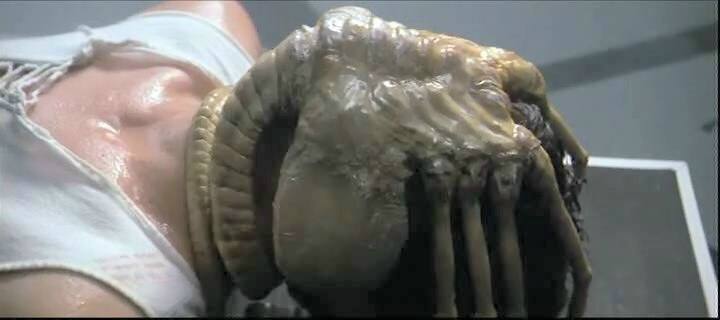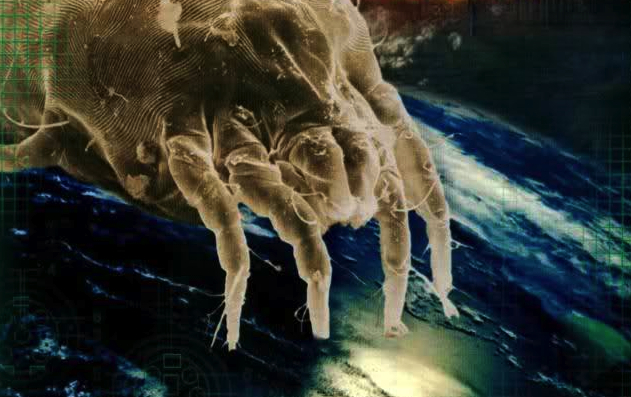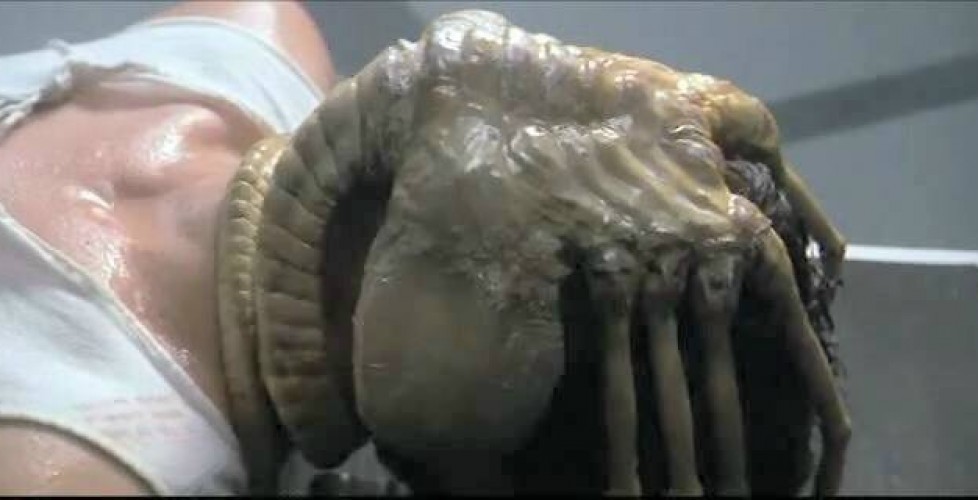Parasites Among Us, with Jim McKerrow
You still don’t know what you’re dealing with, do you?
[It’s a] perfect organism.
Its structural perfection is matched only by its hostility …
I admire its purity — unclouded by conscience, remorse, or delusions of morality.
This soliloquy from the 1979 horror classic Alien is spoken in admiration of a perfectly horrible creature that is parasitic upon numerous organisms — including unsuspecting Earthlings.

Alas, much of what I know about parasites I learned while watching Alien — with my stomach in a knot and my arms folded VERY tightly across my chest. Fortunately, I have a friend who finds parasites fascinating, and this friend loves to share her insights.
My knowledge-sharing friend is Juliana Gallin, creator of Ask a Scientist. In the case of parasites, Juliana has asked an expert to share his knowledge with the fans of Ask a Scientist AND the friends of Wonderfest.
On Tuesday, April 2, Dr. Jim McKerrow, Director of the Center for Discovery and Innovation in Parasitic Diseases, will present Parasites Among Us. Our venue is as exciting as — and a great deal more appetizing than — our topic. Surrounded by a diverse and delightful convoy of food trucks, we will gather in the enclosed heart of Streat Food Park.

The second dictionary* definition of parasite says “an organism living in, with, or on another organism” obtaining “benefits from that host, which it usually injures.” (The first definition refers to “a person who exploits the hospitality of the rich”!)
Of the ~ 4,000 species of mammals, very few are parasitic. But when we add up the 5,000 species of tapeworms, 200,000 species of parasitic wasps, and the legion of other parasitic species, we find that the majority of animal species are parasitic! And, finally, when we kick in untold thousands of fungi, plants, protozoa, and bacteria, we see that most living organisms on the planet are parasites of one form or another.
Humans, too, certainly have parasitic qualities. Some say we have become the foremost parasites of Gaia, i.e., of the whole biosphere. And that we have nothing to be ashamed of … unless we do it poorly.
 “There’s no shame in being a parasite. We join a venerable guild that has been on this planet since its infancy and has become the most successful form of life on the planet. But we [humans] are clumsy in the parasitic way of life. … [Other parasites] are expert at causing only harm that’s necessary, because evolution has taught them that pointless harm will ultimately harm themselves. If we want to succeed as parasites, we need to learn from the masters.”**
“There’s no shame in being a parasite. We join a venerable guild that has been on this planet since its infancy and has become the most successful form of life on the planet. But we [humans] are clumsy in the parasitic way of life. … [Other parasites] are expert at causing only harm that’s necessary, because evolution has taught them that pointless harm will ultimately harm themselves. If we want to succeed as parasites, we need to learn from the masters.”**_______________
* Merriam Webster’s Collegiate Dictionary, 10th ed., 1997
** Carl Zimmer, Parasite Rex, 2000, p.245
* Merriam Webster’s Collegiate Dictionary, 10th ed., 1997
** Carl Zimmer, Parasite Rex, 2000, p.245
- TITLE: Parasites Among Us
- SPEAKER: Dr. Jim McKerrow, Director of the Center for Discovery and Innovation in Parasitic Diseases
- WHEN: Tuesday, April 2, 7:00 pm
- WHERE: in the enclosed heart of SoMa StrEat Food Park, 428 11th Street, San Francisco, CA 94103
- ADMISSION: FREE!
Please consider making a donation to Wonderfest to help us promote science. Even a modest gift will make more events like this possible.
RSVP:

